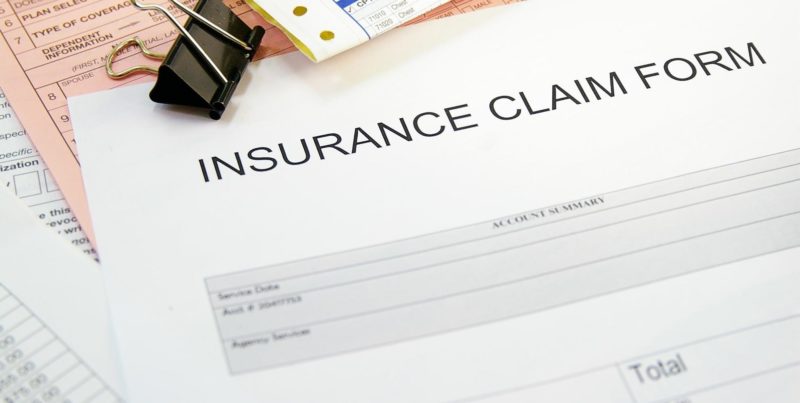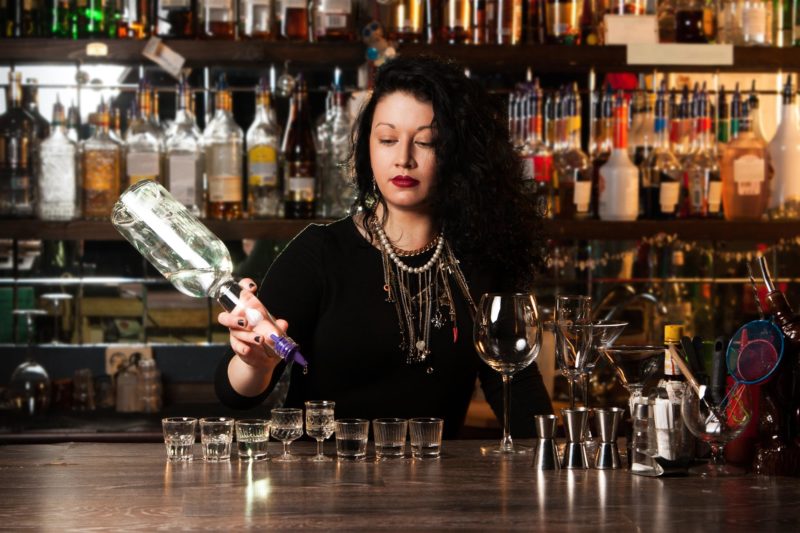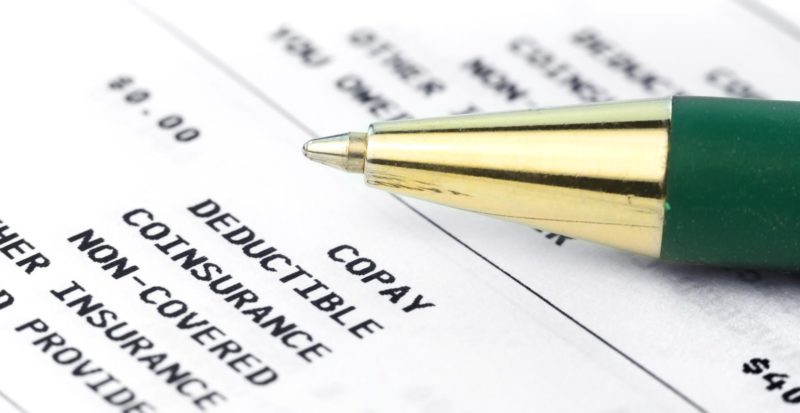Commercial Insurance Coverage for the Food Industry
What You Need to Know About Food Service Insurance
Insurance Types: General Liability | Liquor Liability Insurance | Commercial Property | Errors and Omissions (E&O) | Directors and Officers (D&O)
No two businesses are exactly alike, and every business has unique needs for insurance coverage. A restaurant may need liquor liability insurance in addition to or as part of a commercial general liability (CGL) policy, while a food manufacturing facility might need a customized insurance policy that addresses food liability and other unique needs of that industry. The policy variations and needs are wide, and that is why you need experts to help you determine what you may or may not need to best protect your business.
Many different types of nightclub, bar, and restaurant insurance policies are available to business owners. The professionals at Tabak Insurance are excellent at evaluating a business’s insurance needs and helping business owners secure affordable, comprehensive bar and restaurant insurance coverage. Whatever your commercial insurance needs, we can design a protection program that’s right for you.
We work with the Food & Beverage Insurance Agency, which offers the following types of restaurant insurance protection:
Property Insurance/Building Improvements
Commercial property insurance policies typically cover losses against:
- Business Income
- Equipment Breakdown
- Food Contamination/Spoilage
- Crime/Employee Dishonesty
- Windstorm
- Flood
Liability
Commercial general liability (CGL) policies typically cover losses against:
- Assault and Battery
- Employee Benefit Liability
- Workers’ Compensation and Employers’ Liability
- Auto/Valet Liability (including Auto Physical Damage)
- Umbrella/Excess Liability
Also called commercial general liability insurance, this coverage protects business owners against “third-party” claims, meaning claims that are brought against the business by customers, clients, vendors, contractors, and others. It provides protection against property damage, bodily injury, negligence, and libel claims. This coverage is beneficial for business owners seeking basic bar and restaurant insurance coverage.
Who is covered: Business owners, employees, members, and their spouses are protected if a suit is brought against them for something they do acting in an official capacity for the business. It will also pay for legal expenses, including the cost to defend or investigate a suit or claim against you, court costs, fees, and other reasonable expenses.

It’s helpful to note that CGL policies do not cover everything. If your establishment manufactures, sells, distributes, or serves alcoholic beverages, a CGL policy will generally not cover you for liquor-related accidents — you’ll need liquor liability insurance. Employee injuries incurred on the job are generally not covered under a CGL policy — you’ll need workers’ compensation insurance.
There are two commercial general liability coverage forms available: the occurrence form and the claims-made form. Both forms are somewhat identical in the coverages offered. The main difference is in the way claims are handled under the two forms.
-
The occurrence form covers bodily injury or property damage claims that occur during the policy term, regardless of when the claim is reported.
-
The claims-made policy form only covers claims made against the insured during the policy term; a claim made after the policy expires is not covered by a claims-made policy unless the claim is covered by an extended reporting period.
For more information, please check out the general liability insurance overview.
Consult with the experts at Tabak Insurance to understand what a CGL does and does not cover.
Commercial Property Insurance
Commercial property insurance protects your real property (land, buildings/structures), personal property (all property that is not real property), assets, and inventory against losses by accident, theft, and other means. It generally covers costs to repair or replace damaged or stolen property, which can include office equipment, inventory, supplies, furniture, building fixtures that you installed, and other items. It covers these items whether on-site or off-site.
Most commercial properties are covered under the Building and Personal Property form, which covers direct physical loss or damage to covered property at the premises described in the policy against covered losses. This can include the building and other structures, completed additions, outdoor fixtures, permanently installed fixtures, machinery, and equipment. The Building and Personal Property form typically also provides protection for the personal property of others while in the insured person’s care, custody, or control. Some policies also have coverage extensions and additional coverages.
For further details, please review the commercial property insurance overview.
The experts at Tabak Insurance will ask you a series of questions to determine precisely what coverage you’ll need, as well as which extensions/additions are appropriate for your business.
Liquor Liability Insurance
Liquor liability insurance policies (sold as standalone policies or as part of a CGL policy) protect businesses that manufacture, distribute, sell, serve, or aid in the use or purchase of liquor (e.g., dram shop) against liability claims. A liquor liability insurance policy can protect against a claim made by the family of a person who was killed by a drunk driver who had been drinking at your establishment, or the parents of a minor who sued your liquor store for injuries their son incurred after drinking liquor that your store clerk sold him.
Not all liquor liability insurance policies cover everything — assault and battery are commonly excluded, so be sure to read your policy carefully to verify it covers against this and other perils. You can also contact the professionals at Tabak Insurance to be sure you are getting the liquor liability insurance coverage you need.
Errors and Omissions Insurance
Also called professional liability insurance (PLI), errors and omissions (E&O) insurance protects business owners against claims made by clients for financial losses. Suppose a business owner’s marketing consultant accidentally creates a slogan that is similar to the slogan of another company, and that company sues for copyright infringement. Most errors and omissions policies would cover this, subject to the coverage limits outlined in the policy.
Note that most errors and omissions policies are sold on a “claims-made” basis, which means the policy only covers claims made against work performed while the policy is in effect; claims made after coverage ends would not be covered.
For additional information, please read the errors and omissions insurance overview.

Directors and Officers Liability Insurance
Often simply referred to as “D&O,” directors and officers liability insurance protects the directors or officers of a company, or the organization itself, against losses resulting from legal actions made against the officers/directors/organization for wrongful acts committed in an official business capacity. E&O usually covers costs for legal defense and investigations associated with the alleged regulatory violations or criminal actions. D&O insurance typically does not cover intentional illegal acts.
The coverages explained below are often included as part of a commercial general liability and/or commercial property insurance policy:
-
Premises/Operations Coverage: Premises/operations coverage is included as part of many CGL policies and provides coverage for damages that arise out of ownership or occupancy of the insured premises when not maintained in a reasonable manner. Premises/operations coverage also pays for damages arising out of operations performed by the insured business.
-
Products/Completed Operations Coverage: The products portion of a commercial insurance policy provides coverage for damages arising out of products manufactured, sold, handled, or distributed by the insured. Completed operations coverage pays for damages occurring after operations have been completed or abandoned, or after an item is installed or built and released for its intended purpose.
-
Medical Payments Coverage: The medical payments section of a commercial insurance policy pays medical expenses (subject to the limits outlined in the policy) resulting from bodily injury caused by an accident on the premises owned or rented by the insured, or locations next to such property, or when caused by the insured’s operations. These payments are made without regard to the liability of the insured.
-
Fire Legal Liability Coverage: Fire legal liability coverage is included in most CGL policies. It protects business owners who are renting a space/building against fire damage caused by their business’s negligence. Suppose a restaurant employee leaves a fryer on overnight, and the fryer starts a fire, which causes $100,000 in damages to the building. The landlord could demand that the restaurant owner pay for the damage since the fire was caused by his/her employee’s negligence. Fire legal liability coverage would protect the restaurant owner in such a case. Note that fire legal liability only provides coverage for property rented to the named insured on the policy (in this case, the restaurant owner). If an adjacent building that is not rented to the insured was also damaged in the fire, those damages would not be covered under the fire legal liability coverage.
-
Personal Injury Coverage: Personal injury coverage is included as part of many commercial insurance policies. “Personal injury” means injury other than (physical) bodily injury. It provides coverage for injuries resulting from offenses such as false arrest, malicious prosecution, detention or imprisonment, wrongful entry into, wrongful eviction from, and other acts of invasion, or rights of private occupancy of a room. Coverage for libel and slander is also provided in the policy.
-
Advertising Injury Coverage: Often combined with personal injury (PI) coverage on CGL policies, advertising injury coverage pays for damages in connection with the insured’s oral or written advertising, if that advertising disparages, libels, or slanders a person’s or organization’s goods, products, or services. Coverage applies only if the offense(s) occur during the course of advertising of the named insured’s own goods, products, or services.
Glossary of Insurance Terms
The following terms appear throughout commercial bar and restaurant insurance policies and are helpful to know and understand:
Each Occurrence
Each occurrence refers to an accident, which could include continuous or repeated exposure to the same harmful conditions. An occurrence can also be a sudden event, or an incident resulting from a long-term series of events.

Limit of Insurance
The limit of insurance is the most the insurer will pay for loss or damage in any one occurrence, as stated in the policy declarations.
Deductible
The deductible is the amount the insured person/entity will pay before the insurance company pays on a claim. Most commercial insurance policies have a standard deductible of $1,000. Different coverages within the policy may have separate deductible amounts. The deductible applies once per claim/loss, not once per policy term.
Coinsurance
Most building and business personal property policies have a coinsurance clause that requires the insured to carry insurance equal to at least a specified percentage of the actual cash value (ACV) of the property. If the ACV of the property is $1 million and the coinsurance clause says the insured must carry insurance that covers 80% of the ACV of the building, the insured must have a policy that covers at least $800,000. If a loss occurs, and it is determined that the amount of insurance carried is less than the amount required, a penalty could be placed on the insured.
Causes of Loss
The term “peril” is used when discussing losses. A peril is a cause of loss. Basic form property insurance policies typically cover the perils of fire, lightning, explosions, windstorms, hail, smoke, aircraft or vehicle damage, riot or civil commotion, vandalism, sprinkler leakage, sinkhole collapse, and volcanic action.
Broad form property insurance policies often add coverages for water damage, the weight of snow, ice or sleet, breakage of glass, and coverage for falling objects. The broadest coverage is the special form, most often referred to as the all-risk form. All risk covers all causes of loss, except those specifically excluded from coverage. It is possible for a commercial property policy to have more than one cause of loss form.
Replacement Cost and Actual Cash Value
Property can be valued in several different ways. Insurance companies commonly use two approaches to determine value, which also determines how a loss will be paid: the replacement cost method and the actual cash value method.
The replacement cost of a property item is the cost to replace it with new property of a similar nature.
Actual cash value is the replacement cost minus the accumulated depreciation for age and condition.
Agreed Value
The agreed value option is used to remove the coinsurance requirement from a policy, in which case the insurer agrees to cover losses for the agreed value. Suppose a person has their property insured for $100,000, and the agreed value is also $100,000. In this case, losses up to $100,000 would be covered 100%. When this option is used, the insured and the insurance company agree on the value of the property before the policy is issued. This option is usually assigned to one-of-a-kind property.
Inflation Guard
Buildings can (and hopefully do) increase in value over time. While a building might have been insured to its full value at the beginning of a policy term, by the end of the term the coverage may be insufficient. This is where inflation guard coverage comes in. The inflation guard gradually increases the policy limit during the policy term to achieve the desired percentage increase by the end of the policy term.
General Aggregate
The general aggregate limit is the maximum amount the insurer will pay during the policy term for all coverages, including bodily injury, property damage, advertising injury, etc.
Seek Comprehensive Insurance Coverage Today
Tabak Insurance seeks to provide comprehensive insurance coverage to our customers at an affordable cost. Whether you need insurance for bars, restaurants, nightclubs, or catering businesses, we have you covered. Our bar and restaurant insurance policies are customized to fit your individual business needs. Contact us today to learn more about the bar and restaurant insurance policies we offer.

